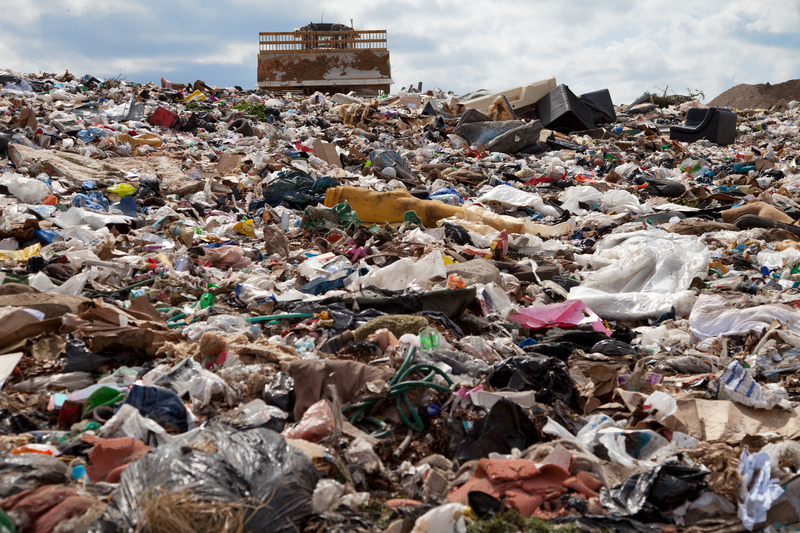Home Waste Management Strategies for a Cleaner Future
As our world rapidly changes, the amount of waste generated in households continues to rise. Efficient home waste management is not just a trend but an imperative. By adopting innovative and sustainable strategies, we can transform our living spaces into environmentally friendly havens while contributing to a cleaner, healthier planet. This comprehensive article explores effective home waste management strategies that every household can implement for a cleaner future.
Why Is Home Waste Management Important?
Home waste management is critical for several reasons:
- Reduces landfill burden and environmental pollution.
- Conserves natural resources by encouraging recycling and upcycling.
- Minimizes greenhouse gas emissions caused by organic waste decomposition.
- Improves health through better sanitation and reduced exposure to harmful chemicals.
- Saves money through smarter purchasing decisions and waste reduction techniques.
- Promotes a culture of sustainability within the community.
By implementing effective waste reduction strategies, we can all play a pivotal role in preserving our shared environment.

Understanding Different Types of Household Waste
Before mastering modern home waste management strategies, it's essential to recognize the various types of household waste:
- Organic waste: Food scraps, yard trimmings, and biodegradable items.
- Recyclable waste: Paper, glass, metals, and plastics that can be reprocessed.
- Hazardous waste: Batteries, chemicals, paints, electronics, and cleaning agents.
- Non-recyclable waste: Items that cannot be recycled or composted, often ending up in landfills.
Did you know?
A typical American household generates more than 4.5 pounds of waste per person per day. With efficient home waste management, this figure can be significantly reduced.
Source Segregation: The Foundation of Waste Management at Home
Source segregation is the practice of sorting waste at the point of its generation, i.e., in your home. This simple yet powerful technique prevents contamination, making recycling and composting far more effective.
How to Implement Segregation at Home
- Set up different color-coded bins for organic, recyclable, and non-recyclable waste.
- Place labels or stickers on bins to guide all family members.
- Wash and dry recyclables before placing them in the recycling bin to prevent contamination.
- Keep hazardous waste separate and dispose of it during designated community collection drives.
- Regularly empty and clean the bins to discourage pests and foul odors.
With consistent practice, waste sorting quickly becomes second nature, benefitting both your household and the environment.
The Hierarchy of Home Waste Management: Reduce, Reuse, Recycle
The golden rule of home waste management lies in the 3Rs - Reduce, Reuse, and Recycle. These principles provide a systematic approach to minimizing waste generation.
Reduce: Curb Waste at Its Source
- Avoid single-use products. Opt for reusable bags, bottles, and containers.
- Plan meals and shopping lists to prevent food waste and unnecessary purchases.
- Buy in bulk to cut down on packaging waste.
- Choose products with minimal packaging or those made from recyclable materials.
- Embrace digital solutions like e-bills, e-books, and online subscriptions to reduce paper waste.
Reuse: Give Items a Second Life
- Repurpose glass jars for storage or DIY crafts.
- Transform old clothes into cleaning rags or quilt patches.
- Donate functioning electronics, books, and furniture
- Reuse packaging materials for mailing or storage needs.
- Get creative! Turn waste items into toys or home decor.
Recycle: Close the Loop
- Participate in your local recycling program and stay updated about accepted materials.
- Clean and dry all recyclables to maintain quality and prevent cross-contamination.
- Use recycling drop-off centers for items not collected curbside, such as electronics or batteries.
Recycling is a crucial pillar of sustainable home waste management, enabling valuable materials to re-enter the production cycle and reducing landfill accumulation.
Composting: Turn Kitchen Waste into Garden Gold
One of the most impactful home waste management strategies is composting. Composting transforms organic waste like food scraps, coffee grounds, and yard trimmings into nutrient-rich fertilizer for gardens.
Benefits of Home Composting
- Reduces the volume of waste sent to landfills.
- Cuts methane emissions from decomposing organic matter in landfills.
- Yields high-quality compost that enriches garden soil.
- Lowers household carbon footprint.
How to Start Composting at Home
- Choose a composting method: outdoor pile, compost bin, or indoor vermicomposting for small spaces.
- Collect green material (fruit and vegetable scraps, coffee grounds) and brown material (dried leaves, cardboard, newspaper).
- Avoid adding dairy, meat, oils, and large bones to prevent foul odors and pests.
- Turn your compost regularly to aerate and speed up decomposition.
- Within a few months, harvest your dark, crumbly compost and use it for houseplants or gardens.
Dealing with Hazardous and E-Waste Responsibly
Hazardous Waste: What Every Homeowner Should Know
Items like expired medicines, batteries, fluorescent bulbs, cleaning agents, paints, and electronics pose environmental and health risks if disposed of improperly. Effective household waste management must include responsible disposal of these hazardous materials.
- Check local guidelines for hazardous waste collection days or drop-off locations.
- Never pour chemicals down the drain or mix them with regular waste.
- Opt for eco-friendly household products whenever possible to minimize hazardous waste.
Handling E-Waste at Home
- Donate, resell, or recycle old electronics through certified e-waste recycling centers.
- Delete all personal data before disposing of computers or mobile devices.
- Trade in products when purchasing new gadgets, if retailers offer this option.
- Collect used batteries and bulbs for specialized recycling rather than trashing them.
Tackling Food Waste: Smarter Consumption and Preservation
Globally, approximately one-third of all food produced is wasted. Smarter food management is a crucial aspect of modern home waste management solutions.
Effective Strategies to Minimize Food Waste
- Practice first-in, first-out (FIFO) in your pantry and refrigerator.
- Learn creative recipes to use up leftovers and food scraps.
- Store food correctly to extend freshness; use airtight containers and appropriate refrigeration.
- Freeze surplus meats, bread, and produce to preserve their shelf life.
- Plan weekly meals and shop with a clear grocery list to avoid impulse buying.
- Monitor expiration dates and use up near-expiry items first.
Innovative Home Waste Management Technologies
Technology has revolutionized the way we handle domestic waste. Here are some innovative home waste management solutions to consider:
- Smart recycling bins that detect and sort different materials automatically.
- Composters designed for apartments, enabling odor-free indoor composting.
- Apps that remind users of waste collection schedules and recycling tips.
- Food-sharing platforms to donate surplus food rather than toss it out.
- Online marketplaces for exchanging or selling used items, reducing landfill input.
Embrace Technology for a Cleaner Home Environment
By integrating these modern tools, households can boost their waste reduction efforts, save time, and ultimately contribute to a greener tomorrow.
Engaging the Family in Home Waste Management
Waste management is most effective when it becomes a shared responsibility. Encouraging family participation can foster a strong culture of sustainability at home.
- Teach children the importance of sorting and recycling through fun activities.
- Set up a reward system for meeting waste reduction goals.
- Host monthly "declutter days" to sort and responsibly dispose of unused items.
- Create a family composting project for the backyard or indoor plants.
- Share success stories and track progress together.
Community Involvement: Extend Your Home Waste Management Impact
Taking action beyond the household magnifies the effect of responsible waste disposal. Engaging with neighbors and local authorities can help create a cleaner, more sustainable community.
- Organize community clean-up drives and recycling days.
- Share best practices on social media or local forums to inspire others.
- Work with local government to advocate for better waste segregation and recycling infrastructure.
- Support businesses that use sustainable packaging and responsible waste practices.

The Environmental and Economic Benefits of Effective Home Waste Management
Implementing the right home waste management strategies brings about tremendous environmental and economic advantages:
- Reduced landfill use leads to less soil and water contamination.
- Less air pollution from burning waste or landfill gases.
- Lower costs for waste disposal and resource extraction.
- New jobs created in the recycling and green technology sectors.
- Enhanced community health through improved sanitation and cleaner air.
Ultimately, every step taken at home contributes to a broader global impact.
Conclusion: Building a Cleaner Future, One Home at a Time
The responsibility for a cleaner, more sustainable future starts at home. Adopting effective home waste management strategies does not require dramatic changes--just a commitment to mindful living, ongoing learning, and community engagement. By putting the principles outlined in this guide into action, you can create a lasting positive impact on your environment and inspire others to follow in your footsteps.
Together, we can make "waste" a thing of the past and build a cleaner future for generations to come.